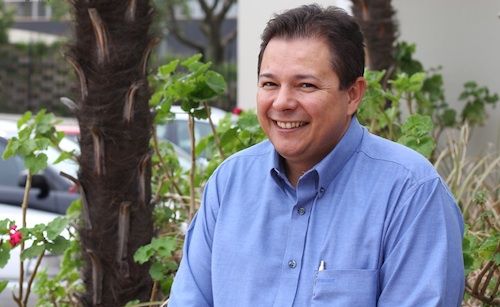
Telkom has an uphill battle ahead of it when it comes to unbundling the local loop. However, a company with a great deal of experience in what the process entails, BT Group (formally British Telecom), says the SA fixed-line incumbent is on the right track.
Providing access to the copper infrastructure that enters business premises and consumers’ homes has been hailed as the last remaining regulatory and competitive hurdle to cheap broadband.
Communications minister Roy Padayachie has told the partially state-owned company — government directly holds 39,8% of its equity — that it must provide access to its copper network to competitors by November 2011.
BT and Telkom have a similar history. Both started out as a division of the postal service and were later spun off under legislation to form monopolistic state-owned telecoms companies, says Keith Matthews, BT Global Services GM for sub-Saharan Africa.
As state-owned enterprises, government (namely, the taxpayer) effectively paid for the infrastructure built by both companies.
During the 1980s, BT was partially privatised and was tasked with providing rival telecoms companies with access to the access network — or “last mile”.
The process only really spawned a single competitor for BT in the UK, Mercury — now part of Cable & Wireless.
UK telecoms regulator Ofcom eventually explicitly changed BT’s licence conditions in 2000, setting out clearly how BT had to unbundle the local loop.
However, after five years the company had released only 105 000 lines. BT was accused of “walking backwards slowly”.
This has since sped up dramatically. At the end of March this year, there were 14,8m unbundled lines in the UK, with 94 000 more being unbundled on average every week.
South Africans may also end up accusing Telkom of taking its time to unbundle lines. But Matthews says most people have no idea what a big task it was to unbundle the local loop.
The final structure of BT is partially why it was such a complicated process. Before unbundling started, BT was a single business with a single billing system. Since unbundling, the company is broken down into four business units, each with its own separate processes and billing.
One of the divisions created under the structure is BT Openreach, which now manages the access infrastructure.

Effectively, BT is still the curator of the local loop on behalf of the British government, and still maintains the copper access for other operators.
At the start of the unbundling process, the regulator and BT agreed to this structure because government felt the access infrastructure was a national asset.
However, BT also agreed to charge fixed rates for all operators to gain access to the local loop (including BT itself) and make sure those charges were transparent.
Cutting up a behemoth like BT into several smaller businesses was a mammoth task, says Matthews. “People think it’s an easy process, but there is quite a lot of complexity to deal with when it comes to unbundling,” he says.
According to Matthews, allowing other operators space into telephone exchanges is also a complicated process because new aspects of security have to be taken into account.
“Today’s data centres are built with sharing in mind, and cages and security features are all built in. With legacy exchange buildings, none of that was ever catered for, and will need to be managed by Telkom when unbundling happens,” he says.
It is not clear exactly how Telkom will be tasked with unbundling SA’s last mile, and much depends on how SA’s own regulator, the Independent Communications Authority of SA (Icasa), structures the plan. However, many in the local telecoms industry expect it to follow a similar model to the UK.
Matthews says Icasa will need to be strong to ensure Telkom follows the rules it sets for unbundling. In the UK, OfCom created a task team that would — and still does — make sure BT complies with the rules set out in the unbundling agreement.
“Telkom is well on the right track to making it happen,” says Matthews.
He says Telkom has already started allowing co-location for other operators in its exchanges, and even though this is primarily for wholesale or backhaul access, it is learning about how it will work when it needs to do the same for the last mile.
He says Telkom has long been engaged with BT in the hope of learning the lessons of unbundling that BT had to learn the hard way and so far it appears that Telkom is using the UK operator as its blueprint.
Telkom recently started to revamp its business and its strategy, which included breaking up the group into separate business units. Though Telkom has never indicated that it did this to smooth the way for unbundling, Matthews says it will definitely help when the deadline for Telkom’s unbundling kicks in next year.
“When we had to do it we felt it was unfair because there were so many regulatory pressures on BT. At the time we felt they were extreme, and I am sure Telkom will feel the same,” he says.
However, he says the end result was worthwhile for the UK broadband environment and it generated a new competitive landscape.
He says the SA market will enjoy a boom in broadband growth when the last mile is set free. In the consumer space, he says broadband will start to reach the more rural areas and local Internet providers will start competing on other kinds of services.
“You will see many players looking at content using a decoder type device to serve streaming video and video-on-demand,” he says.
Though Telkom may have a large task ahead, SA will be the ultimate beneficiary, Matthews concludes. — Candice Jones, TechCentral
This is the second in a series of TechCentral articles on local-loop unbundling
- Subscribe to our free daily newsletter
- Follow us on Twitter or on Facebook




